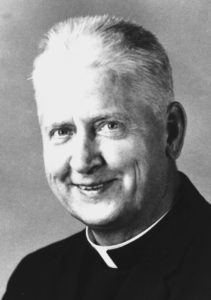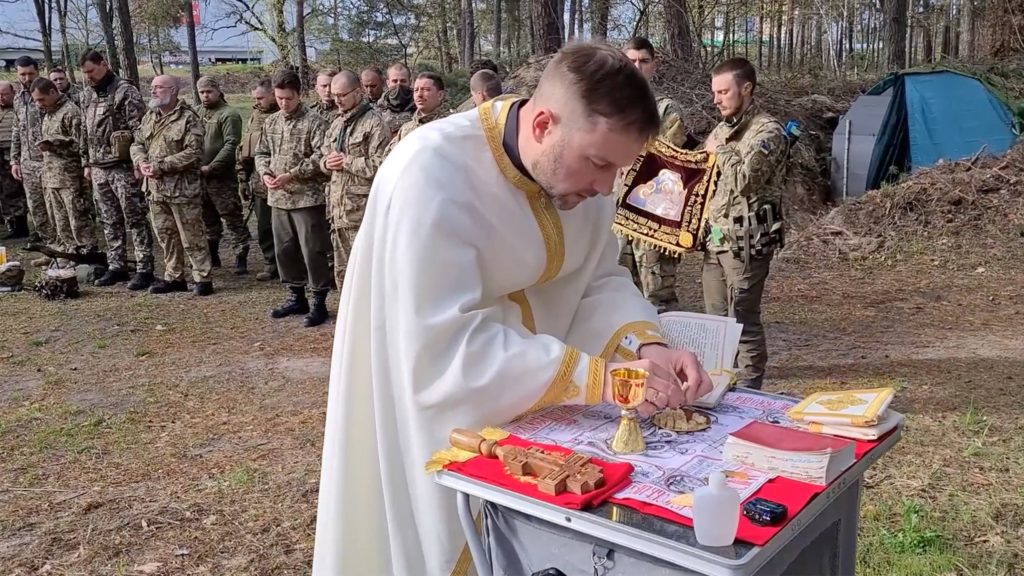A few years ago, a priest friend told me of the phrase ecclesia supplet: literally “the Church supplies.”
From “Adoremus,” an online publication of the Adoremus Society for the Renewal of the Sacred Liturgy:
“Ecclesia supplet is a canonical notion where, in certain situations, the Church herself supplies for a required grant of the power of jurisdiction or executive power of governance to a capable person to place an act (such as a sacramental act) validly where such a necessary grant is either missing or was granted defectively. Canon 144 of the 1983 Code of Canon Law (CIC) lists several situations where the “Church would supply” for a missing or defective necessary executive power of governance. …”
The notion “only applies to the very limited situations outlined in canon 144”; ecclesia supplet “does not and cannot supply for the lack of a required proper person, proper matter, proper form, or proper intent necessary for the valid celebration of a sacrament.”
Suffice it to say that ecclesia supplet has a very narrow canonical application.
Right away, however, I extrapolated the notion in a generalized, Mystical-Body, semi-poetic way to apply to any number of situations where an element might otherwise be lacking or absent.
The Church supplies a tabernacle, an altar, a pew, a priest, for example: items nowhere to be found in “the world.”
For every lackluster homily, the Church supplies a St. John Chrysostom or St. John Henry Newman. When our courage flags, the Church supplies a St. Teresa Benedicta of the Cross (Edith Stein) or a St. Óscar Romero.
When our cross seems too heavy to bear, St. Paul reminds us: “Now I rejoice in my sufferings for your sake, and in my flesh I am filling up what is lacking in the afflictions of Christ on behalf of his body, which is the church” (Colossians 1:24).
I especially thought of the notion that the Church supplies while reading “He Leadeth Me” (Ignatius Press, $14.35), the spiritual classic by Servant of God Walter Ciszek, SJ (1904-1984).

Born to a large Polish Catholic family in the tough mining town of Shenandoah, Pennsylvania, as a youth Ciszek developed a secret desire to be a Jesuit priest. Ordained in 1937, he was assigned to eastern Poland but with permission from his order, snuck across the Russian border. There, he worked in a lumber camp for a year: learning the language, quietly performing baptisms, absolutions, and anointings.
Arrested one night, he was sent to the notorious Lubianka Prison and charged with being a Vatican spy. Much of his five years there were spent in solitary confinement.
He was then sentenced to 15 years of hard labor at a Siberian work camp and, as a priest, singled out for the hardest, dirtiest assignments.
From the beginning, he was determined to do the best job he possibly could, every day, every minute. If this was the work by which he was to give glory to God, so be it.
Moreover, he was overjoyed to find that bread and wine for Mass were smuggled in by friendly priests, nurses, and friends. The barracks were lousy with snitches, so he and his fellow believers secretly celebrated the holy sacrifice at the work site on noon break.
“In small groups the prisoners would shuffle into the assigned place, and there the priest would say Mass in his working clothes, unwashed, disheveled, bundled up against the cold. We said Mass in drafty storage shacks, or huddled in mud and slush in the corner of a building site foundation…there were no altars, candles, bells, flowers, music, snow-white linens, stained glass or the warmth that even the simplest parish church could offer. Yet in these primitive conditions, the Mass brought you closer to God than anyone might conceivably imagine.”
No one complained.
“[T]hese men would actually fast all day long and do exhausting physical labor without a bite to eat since dinner the evening before, just to be able to receive the Holy Eucharist — that was how much the Sacrament meant to them in this otherwise God-forsaken place.”
I think of the factions, in-fighting, grumbling, and complaining in today’s Church. And I wonder how many souls Father Ciszek and his men saved — are still saving — as they stood up to their knees in icy water, slammed up against the wall of some freezing cold, drab industrial site, receiving the Eucharist in utter gratitude.
The Church supplies, even when leadership at the highest levels, in and out of the Church, sometimes seems lacking. The Church supplies when our own hearts are hardened and our prayer is dry as dust. The Church supplies even when we long to give our all, and our all seemingly avails so little that we become absurd even to ourselves.
Can I, like Father Ciszek, cup my hands to receive the drop of Christ’s Precious Blood that might otherwise have dropped unseen, unnoticed, to the ground?
Can I in my life supply to the other members of the Mystical Body — past, present, and future — what may be lacking in their own faith or love?
The Church supplies. And let me never forget the price others have paid that I might become a member of it.

